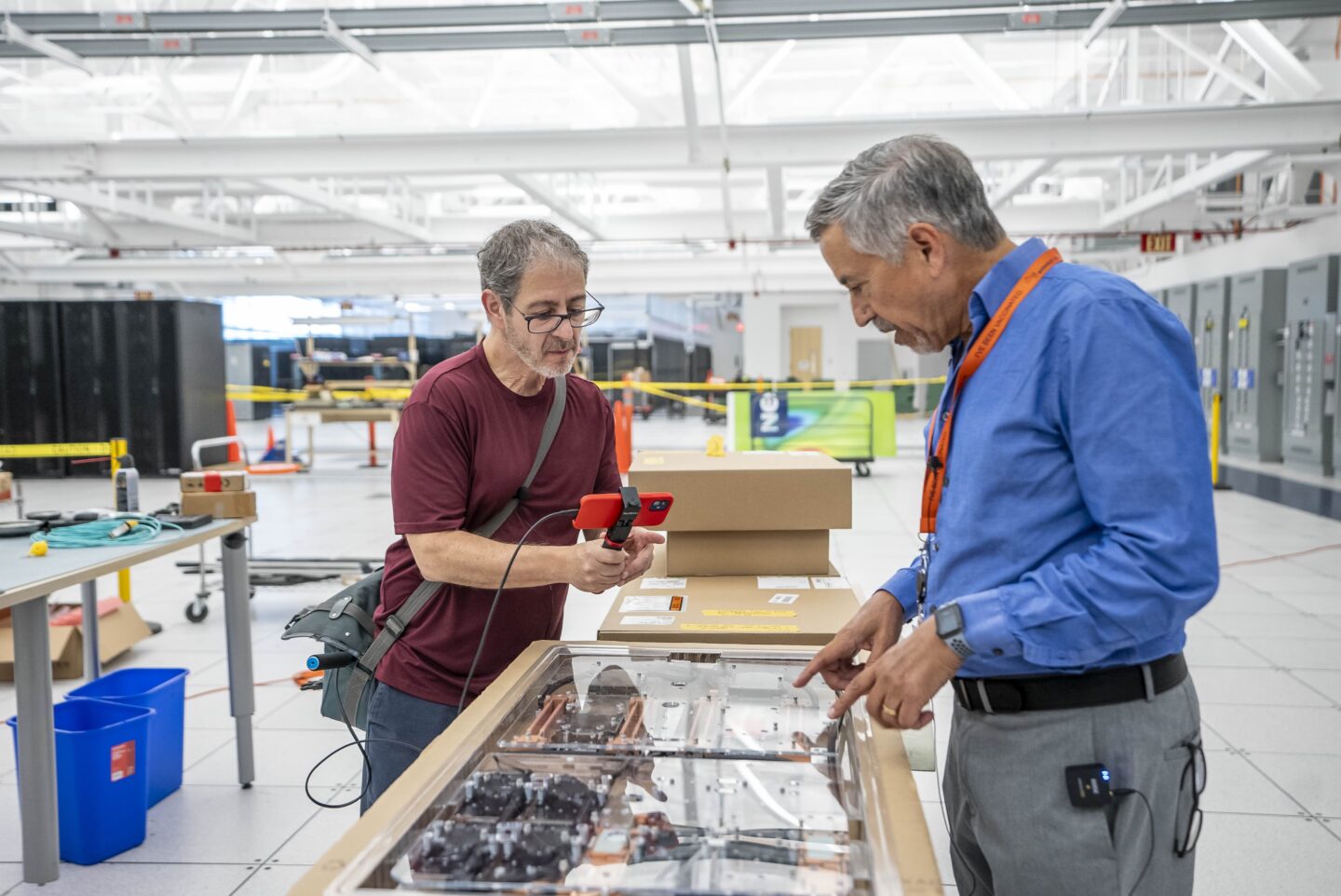“While at NERSC I’ve had a chance to interact with hundreds – maybe thousands – of scientists and their projects, and I don’t think I’ve ever come across one that wasn’t interesting,” said Gerber. This broad interest in science and in helping solve the problems faced by researchers is a thread that has stretched all the way through his career of almost three decades at NERSC, at many levels of the organization. He’ll retire at the end of June.
Science and HPC
Gerber came to NERSC in 1996 after completing a Ph.D. in physics at the University of Illinois and holding a National Research Council postdoctoral fellowship at NASA Ames Research Center in Mountain View. While at Illinois, he leveraged the power of supercomputers at the newly formed National Center for Supercomputing Application (NCSA) in the study of colliding galaxies, and he carried on that work on supercomputers at NASA-Ames. Attracted by the prospect of a position focused on the technical aspects of HPC while maintaining close ties to the science, he joined NERSC just months after it moved to Berkeley with an expanded role in the DOE Office of Science.
“I really enjoy both science and large-scale computing, and this was a great mixture of both,” he said. “Working with computers is fun for me and using the most powerful ones in the world to do science is even better.”
It was a good match. After beginning as an HPC consultant under the leadership of Francesca Verdier, Gerber worked his way up to User Services Group Lead and then HPC Department Head. He eventually earned the title of Senior Science Advisor, and in recent years served as Hardware and Integration Director for the Exascale Computing Project (ECP).
Special Sauce
After devoting his career to NERSC’s growing user base and working with thousands of researchers over the course of decades, Gerber calls the NERSC community of users and staff – their curiosity, their openness to collaboration, their dedication to science, their enthusiasm for HPC, and the impact of their work – the “special sauce” that makes NERSC unique.
“NERSC has always been a wonderful place to work, and we get to work with the world’s best users and scientific challenges,” said Gerber. “That in itself is pretty motivating. Every user you help and every capability you provide enables scientists to do something that’s contributing to the world’s collective scientific knowledge.”
Among his favorite accomplishments in support of NERSC users, Gerber first cites his work on getting NERSC onto the web during the early days of the internet; he believes NERSC offered the first user-accessible online HPC help desk as well as the first online access to live information about center status and jobs running on HPC systems. He also expanded the training program for users and created and ran the user survey to help determine how NERSC can best serve its community. One of his specialties was helping connect user needs with NERSC HPC facilities. He co-led the NERSC Requirements Reviews with scientists across the DOE Office of Science, then did the same for the series of Exascale Requirements Reviews conducted by DOE.
From Gerber’s perspective, NERSC supports users in a range of ways that go far beyond basic support, making the center a partner in the scientific enterprise. This holistic approach offers more than just access to technical tools, expanding the researchers’ capabilities and allowing them to accomplish more than they could do on their own, in ways that benefit the scientific community as a whole.
“We help scientists complete their research in many different ways. We help them optimize their codes so they run faster, and help them debug their codes when they crash and get wrong answers,” said Gerber. “We also consider the entire life cycle of research, and we do our best to get them up and running on the resources they need as quickly and effortlessly as we can. We provide great documentation so they can figure out their own problems, but we also connect them with experts at NERSC and elsewhere in the HPC community. And there’s more: putting on training events and hackathons that help them understand what they can do. I’ve tried throughout my career to create a productive high-end HPC ecosystem for science. That’s always been the goal.”
Gerber is still deciding on how he’ll spend his time after retirement, but his hope for NERSC going forward is that it continues to foster the marriage of world-class HPC and science to produce impactful results that change the world – the thing that drew him to the center in the first place.
About Computing Sciences at Berkeley Lab
High performance computing plays a critical role in scientific discovery. Researchers increasingly rely on advances in computer science, mathematics, computational science, data science, and large-scale computing and networking to increase our understanding of ourselves, our planet, and our universe. Berkeley Lab's Computing Sciences Area researches, develops, and deploys new foundations, tools, and technologies to meet these needs and to advance research across a broad range of scientific disciplines.


